Buckrose (UK Parliament constituency)
Buckrose was a county constituency of the House of Commons of the Parliament of the United Kingdom, comprising the northern part of the East Riding of Yorkshire, represented by one Member of Parliament, and was created for the 1885 general election.
| Yorkshire, East Riding, Buckrose Division | |
|---|---|
| Former County constituency for the House of Commons | |
| County | East Riding of Yorkshire |
| 1885–1950 | |
| Replaced by | Bridlington and Beverley |
| Created from | East Riding of Yorkshire |
Buckrose was abolished for the 1950 general election, when boundary changes reduced the East Riding's number of county constituencies from three to two, the eastern part of the constituency and most of the voters being included in the new Bridlington constituency and the remainder in the Beverley constituency.
Boundaries
1885–1918: The Sessional Divisions of Bainton Beacon, Buckrose, and Dickering.
1918–1950: The Borough of Bridlington, the Urban Districts of Filey, Great Driffield, and Norton, and the Rural Districts of Bridlington, Driffield, Norton, and Sherburn.
The constituency consisted of the northern third of the East Riding of Yorkshire. The largest town in the seat was Bridlington, but it also included Filey, Driffield, and Norton, as well as numerous villages, and the rural element was predominant. At the time of the 1921 census, almost two-fifths (38%) of the occupied male population were engaged in agriculture.
Name
Buckrose took its name from the wapentake of Buckrose, one of the medieval sub-divisions of the East Riding which, however, had long ceased to have much administrative significance by 1885, and had covered only part of the area of the constituency and a minority of its population. (The constituency also included the whole of the former wapentake of Dickering, which included Bridlington and Filey, and part of the wapentake of Harthill which included Driffield.) The name seems to have been chosen primarily to avoid offending any local sensibilities, and with little regard for comprehensibility (a criticism also levelled at many of the other new constituency names created under the 1885 Reform Act).
Members of Parliament
| Election | Member | Party | |
|---|---|---|---|
| 1885 | Christopher Sykes | Conservative | |
| 1886 | William Alexander McArthur[1] | Liberal | |
| 1886 | Christopher Sykes | Conservative | |
| 1892 | Sir Angus Holden | Liberal | |
| 1900 | Sir Luke White | Liberal | |
| 1918 | Algernon Moreing | Coalition Liberal | |
| 1922 | Guy Gaunt [2] | Conservative | |
| 1926 by-election | Sir Albert Braithwaite | Conservative | |
| 1945 | George Wadsworth | Liberal | |
| 1950 | constituency abolished: see Bridlington and Beverley | ||
Elections
Elections in the 1880s
| Party | Candidate | Votes | % | ± | |
|---|---|---|---|---|---|
| Conservative | Christopher Sykes | 4,081 | 51.9 | N/A | |
| Liberal | John James Cousins | 3,785 | 48.1 | N/A | |
| Majority | 296 | 3.8 | N/A | ||
| Turnout | 7,866 | 86.3 | N/A | ||
| Registered electors | 9,113 | ||||
| Conservative win (new seat) | |||||
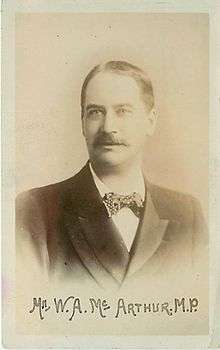
| Party | Candidate | Votes | % | ± | |
|---|---|---|---|---|---|
| Conservative | Christopher Sykes | 3,735 | 50.1 | -1.8 | |
| Liberal | William Alexander McArthur | 3,724 | 49.9 | +1.8 | |
| Majority | 11 | 0.2 | -3.6 | ||
| Turnout | 7,459 | 81.9 | −4.4 | ||
| Registered electors | 9,113 | ||||
| Conservative hold | Swing | -1.8 | |||
- At the General Election of 1886, McArthur was declared the victor over Sykes by a single vote, 3,742 to 3,741, and took his seat, but "on scrutiny" the seat was eventually awarded to his opponent, Sykes, by a majority of 11 votes.
Elections in the 1890s
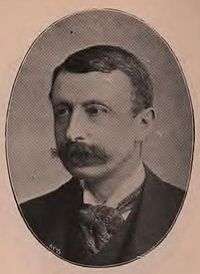
| Party | Candidate | Votes | % | ± | |
|---|---|---|---|---|---|
| Liberal | Angus Holden | 4,294 | 54.1 | +4.2 | |
| Conservative | Frederick Fison | 3,642 | 45.9 | -4.2 | |
| Majority | 652 | 8.2 | N/A | ||
| Turnout | 7,936 | 87.8 | +5.9 | ||
| Registered electors | 9,035 | ||||
| Liberal gain from Conservative | Swing | +4.2 | |||
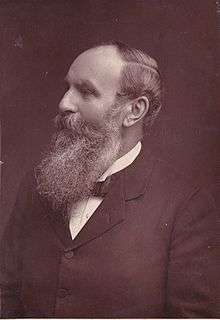
| Party | Candidate | Votes | % | ± | |
|---|---|---|---|---|---|
| Liberal | Angus Holden | 4,076 | 50.6 | -3.5 | |
| Conservative | Thomas Goff | 3,986 | 49.4 | +3.5 | |
| Majority | 90 | 1.2 | -7.0 | ||
| Turnout | 8,062 | 86.8 | -1.0 | ||
| Registered electors | 9,284 | ||||
| Liberal hold | Swing | -3.5 | |||
Elections in the 1900s
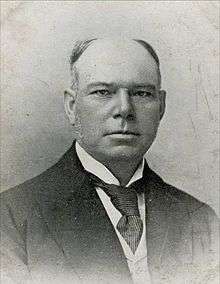
| Party | Candidate | Votes | % | ± | |
|---|---|---|---|---|---|
| Liberal | Luke White | 4,083 | 50.6 | +0.0 | |
| Liberal Unionist | Ernest Meysey-Thompson | 3,992 | 49.4 | −0.0 | |
| Majority | 91 | 1.2 | +0.0 | ||
| Turnout | 8,075 | 83.7 | −3.1 | ||
| Registered electors | 9,652 | ||||
| Liberal hold | Swing | +0.0 | |||
| Party | Candidate | Votes | % | ± | |
|---|---|---|---|---|---|
| Liberal | Luke White | 5,236 | 59.0 | +8.4 | |
| Conservative | Reginald Bethune | 3,634 | 41.0 | −8.4 | |
| Majority | 1,602 | 18.0 | +16.8 | ||
| Turnout | 8,870 | 87.4 | +3.7 | ||
| Registered electors | 10,151 | ||||
| Liberal hold | Swing | +8.4 | |||
Elections in the 1910s
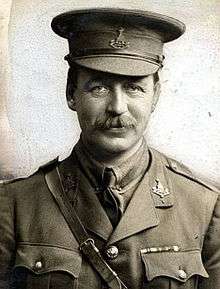
| Party | Candidate | Votes | % | ± | |
|---|---|---|---|---|---|
| Liberal | Luke White | 4,957 | 51.1 | -7.9 | |
| Conservative | Mark Sykes | 4,739 | 48.9 | +7.9 | |
| Majority | 218 | 2.2 | -15.8 | ||
| Turnout | 91.0 | +3.6 | |||
| Liberal hold | Swing | -7.9 | |||
| Party | Candidate | Votes | % | ± | |
|---|---|---|---|---|---|
| Liberal | Luke White | 4,867 | 51.2 | +0.1 | |
| Conservative | Mark Sykes | 4,635 | 48.8 | -0.1 | |
| Majority | 232 | 2.4 | +0.2 | ||
| Turnout | 89.2 | -1.8 | |||
| Liberal hold | Swing | +0.1 | |||
General Election 1914/15: Another General Election was required to take place before the end of 1915. The political parties had been making preparations for an election to take place from 1914 and by the end of this year, the following candidates had been selected;
- Liberal: Luke White
| Party | Candidate | Votes | % | ± | |
|---|---|---|---|---|---|
| C | Coalition Liberal | Algernon Moreing | 9,310 | 60.9 | n/a |
| Independent Labour | George Henry Dawson | 3,176 | 20.8 | n/a | |
| Liberal | Austin Taylor | 2,792 | 18.3 | -32.9 | |
| Majority | 6,134 | 40.1 | n/a | ||
| Turnout | 56.0 | -33.2 | |||
| Coalition Liberal gain from Liberal | |||||
| C indicates candidate endorsed by the coalition government. | |||||
Elections in the 1920s
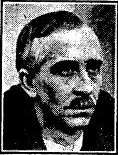
| Party | Candidate | Votes | % | ± | |
|---|---|---|---|---|---|
| Unionist | Guy Gaunt | 12,012 | 51.3 | n/a | |
| Liberal | Thomas Fenby | 11,411 | 48.7 | +30.4 | |
| Majority | 601 | 2.6 | n/a | ||
| Turnout | 82.5 | +26.5 | |||
| Unionist gain from National Liberal | |||||
| Party | Candidate | Votes | % | ± | |
|---|---|---|---|---|---|
| Unionist | Guy Gaunt | 12,336 | 50.4 | -0.9 | |
| Liberal | Thomas Fenby | 12,122 | 49.6 | +0.9 | |
| Majority | 214 | 0.8 | -1.8 | ||
| Turnout | 84.1 | +1.6 | |||
| Unionist hold | Swing | -0.9 | |||
| Party | Candidate | Votes | % | ± | |
|---|---|---|---|---|---|
| Unionist | Guy Gaunt | 13,966 | 56.0 | +5.6 | |
| Liberal | Harry Briggs | 10,962 | 44.0 | -5.6 | |
| Majority | 3,004 | 12.0 | +11.2 | ||
| Turnout | 82.9 | -1.2 | |||
| Unionist hold | Swing | +5.6 | |||
| Party | Candidate | Votes | % | ± | |
|---|---|---|---|---|---|
| Unionist | Albert Braithwaite | 12,098 | 48.7 | -7.3 | |
| Liberal | Harry Verney | 10,537 | 42.5 | -1.5 | |
| Labour | Herbert Cecil Laycock | 2,191 | 8.8 | n/a | |
| Majority | 1,552 | 6.2 | -5.8 | ||
| Turnout | 81.7 | -1.2 | |||
| Unionist hold | Swing | -2.9 | |||
| Party | Candidate | Votes | % | ± | |
|---|---|---|---|---|---|
| Unionist | Albert Braithwaite | 15,625 | 50.0 | +1.3 | |
| Liberal | Sidney Streatfield Leigh Lamert | 13,825 | 44.4 | +1.9 | |
| Labour | Harold H Vickers | 1,766 | 5.6 | -3.2 | |
| Majority | 1,800 | 5.6 | -0.6 | ||
| Turnout | 80.4 | -1.3 | |||
| Unionist hold | Swing | -0.3 | |||
Elections in the 1930s
| Party | Candidate | Votes | % | ± | |
|---|---|---|---|---|---|
| Conservative | Albert Braithwaite | Unopposed | |||
| Conservative hold | |||||
| Party | Candidate | Votes | % | ± | |
|---|---|---|---|---|---|
| Conservative | Albert Braithwaite | 18,090 | 55.1 | n/a | |
| Liberal | Thomas Macleod | 14,763 | 44.9 | n/a | |
| Majority | 3,327 | 10.2 | n/a | ||
| Turnout | 32,853 | 78.4 | n/a | ||
| Conservative hold | |||||
Elections in the 1940s
General Election 1939/40:
Another General Election was required to take place before the end of 1940. The political parties had been making preparations for an election to take place from 1939 and by the end of this year, the following candidates had been selected;
- Conservative: Albert Braithwaite
- Liberal: Thomas Macleod
| Party | Candidate | Votes | % | ± | |
|---|---|---|---|---|---|
| Liberal | George Wadsworth | 15,934 | 51.5 | +6.6 | |
| Conservative | Albert Braithwaite | 14,985 | 48.5 | -6.6 | |
| Majority | 949 | 3.1 | 13.2 | ||
| Turnout | 71.9 | -6.5 | |||
| Liberal gain from Conservative | Swing | +6.6 | |||
Notes
- At the General Election of 1886, McArthur was declared the victor over Sykes by a single vote, 3,742 to 3,741, and took his seat, but "on scrutiny" the seat was eventually awarded to his opponent, Sykes, by a majority of 11 votes
- Resigned his seat
- Debrett's House of Commons & Judicial Bench, 1886
- British parliamentary election results, 1885-1918 (Craig)
- British Parliamentary Election Results 1918-1949, FWS Craig
References
- F W S Craig, "British Parliamentary Election Results 1918-49" (Glasgow: Parliamentary Research Services, 1969)
- Michael Kinnear, "The British Voter" (London: Batsford, 1968)
- Frederic A Youngs, jr, "Guide to the Local Administrative Units of England, Vol II" (London: Royal Historical Society, 1991)
- "The Constitutional Yearbook, 1913" (London: National Unionist Association, 1913)
- Leigh Rayment's Historical List of MPs – Constituencies beginning with "B" (part 6)